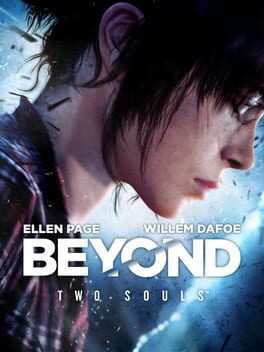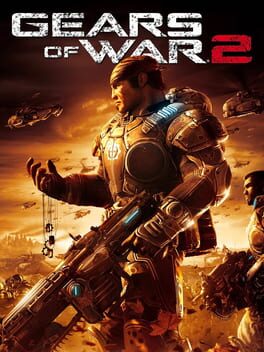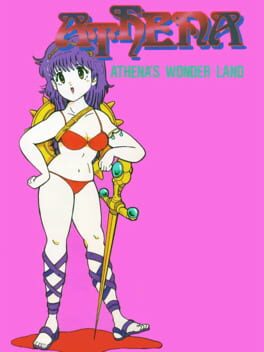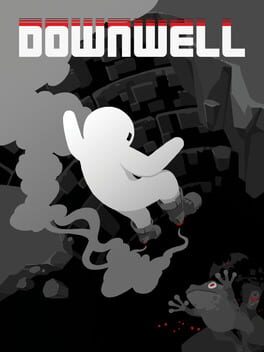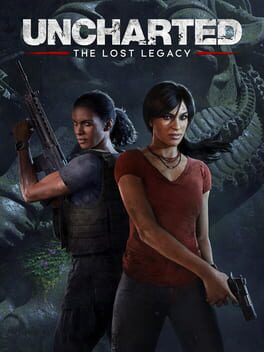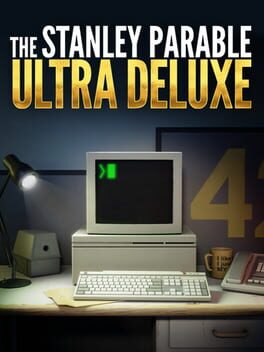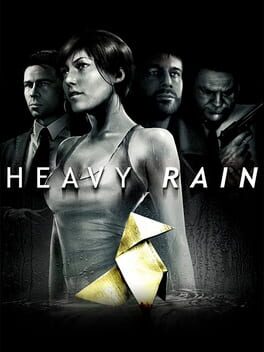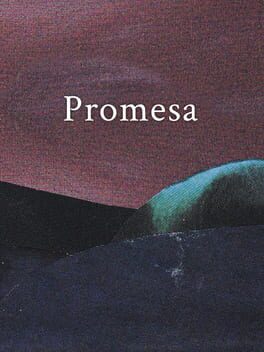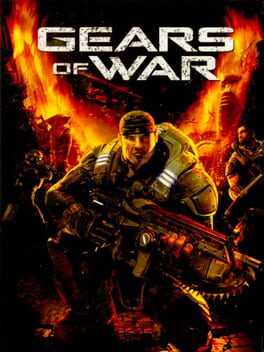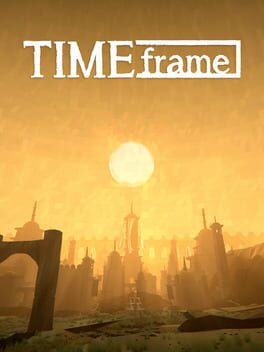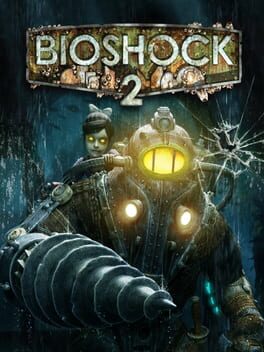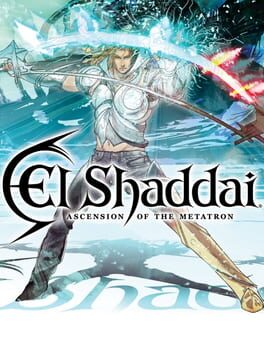2013
El inevitable destino de una decisión artística equivocada, llevada a su extremo más ridículo. Donde Heavy Rain se presentaba como una propuesta de género con toques interactivos (que acababa disparándose su propio pie de pura incompetencia) Beyond se viste desde el principio como una Obra Seria que quiere hablar de Temas Serios ¿Qué Temas Serios? Elige ¡Los tenemos todos!
Bajo la montaña de chistes fáciles y derribos a su persona que David Cage (merecidamente) recibe, el señor y su equipo poseen una sensibilidad pulpera que tengo que admitir que me atrae. Heavy Rain supo mostrar, aunque fuera a ratos, ese talento del señor de Gruttola para recoger un género casposo y pasarlo por un par de pinceladas estilísticas. Un Night Shaymalan de mercadillo, podríamos decir. Pero ese potencial nunca se verá cumplido porque, incluso en sus mejores momentos (Fahrenheit, Omikron, una escena específica en Beyond) le puede el complejo y se ve obligado a disfrazar de oro lo que no pasa de pirita.
Aunque se trata de un estilo de juego denostado, el modelo de la "cinemática interactiva" ha dado muchas cosas buenas a lo largo del tiempo (pienso en Until Dawn como caso reciente y, mucho más atrás, me vienen a la cabeza los juegos de Tex Murphy y el grandioso Phantasmagoria 2) y su condición de género acomplejado es más culpa de quienes lo utilizan que del modelo en sí. Juegos como Beyond, con toda su pretensión de contar una historia madura repleta de tópicos de sensibilidad intelectualoide (la pobreza, los conflictos militares africanos, la marginación de los nativos americanos) acaba haciendo más mal que bien.
2013 fue una mierda de año entre esto, Last of Us y Bioshock Infinite. Vaya manera más patética de cerrar el ciclo de consolas de entonces y vaya presagio siniestro del que vendría después.
------------------------
The inevitable fate of a wrong-headed artistic path, taken to its horrible extreme. Whereas Heavy Rain presented itself as genre fare with some interactive elements (that crumbles out of sheer incompetence) Beyond: Two Souls wants to be immediately seen as a Serious Work that wants to talk about Serious Issue. What Serious Issues? Take your pick, we've got them all!
Underneath the mountain of easy jokes and dunks that David Cage (deservedly) receives, the man and his team possess a pulp sensibility that appeals to me at times. Heavy Rain was able to showcase, albeit briefly, Mr. Gruttola's talent for picking up a well-trod genre and elevate it with his particular touch. A second banana Night Shaymalan, we could say. But that potential will never be fulfilled because, even in his best moments (Fahrenheit, Omikron, a specific scene in Beyond) he is overcome by an inferiority complex and tries to reach highs that will never be reached.
Although this form of gameplay is generally mocked, the "interactive cutscene" model has made plenty of good things over the years (I'm thinking Until Dawn as a recent example, and the Tex Murphy games and Phantasmagoria 2 as earlier ones). The fact that it's so condescended today is more the fault of its participants than about the model itself. Games like Beyond, with its dedication towards telling a mature story with plenty of high-minded liberal topics (poverty, the Sudanese military conflict, the marginalization of Native Americans) ends up doing more harm than good.
Man, between this, The Last of Us and Bioshock: Infinite, 2013 was a really shitty year. What a pathetic way to cap on a whole generation of consoles, and what a sinister omen for what the next one would be about
Bajo la montaña de chistes fáciles y derribos a su persona que David Cage (merecidamente) recibe, el señor y su equipo poseen una sensibilidad pulpera que tengo que admitir que me atrae. Heavy Rain supo mostrar, aunque fuera a ratos, ese talento del señor de Gruttola para recoger un género casposo y pasarlo por un par de pinceladas estilísticas. Un Night Shaymalan de mercadillo, podríamos decir. Pero ese potencial nunca se verá cumplido porque, incluso en sus mejores momentos (Fahrenheit, Omikron, una escena específica en Beyond) le puede el complejo y se ve obligado a disfrazar de oro lo que no pasa de pirita.
Aunque se trata de un estilo de juego denostado, el modelo de la "cinemática interactiva" ha dado muchas cosas buenas a lo largo del tiempo (pienso en Until Dawn como caso reciente y, mucho más atrás, me vienen a la cabeza los juegos de Tex Murphy y el grandioso Phantasmagoria 2) y su condición de género acomplejado es más culpa de quienes lo utilizan que del modelo en sí. Juegos como Beyond, con toda su pretensión de contar una historia madura repleta de tópicos de sensibilidad intelectualoide (la pobreza, los conflictos militares africanos, la marginación de los nativos americanos) acaba haciendo más mal que bien.
2013 fue una mierda de año entre esto, Last of Us y Bioshock Infinite. Vaya manera más patética de cerrar el ciclo de consolas de entonces y vaya presagio siniestro del que vendría después.
------------------------
The inevitable fate of a wrong-headed artistic path, taken to its horrible extreme. Whereas Heavy Rain presented itself as genre fare with some interactive elements (that crumbles out of sheer incompetence) Beyond: Two Souls wants to be immediately seen as a Serious Work that wants to talk about Serious Issue. What Serious Issues? Take your pick, we've got them all!
Underneath the mountain of easy jokes and dunks that David Cage (deservedly) receives, the man and his team possess a pulp sensibility that appeals to me at times. Heavy Rain was able to showcase, albeit briefly, Mr. Gruttola's talent for picking up a well-trod genre and elevate it with his particular touch. A second banana Night Shaymalan, we could say. But that potential will never be fulfilled because, even in his best moments (Fahrenheit, Omikron, a specific scene in Beyond) he is overcome by an inferiority complex and tries to reach highs that will never be reached.
Although this form of gameplay is generally mocked, the "interactive cutscene" model has made plenty of good things over the years (I'm thinking Until Dawn as a recent example, and the Tex Murphy games and Phantasmagoria 2 as earlier ones). The fact that it's so condescended today is more the fault of its participants than about the model itself. Games like Beyond, with its dedication towards telling a mature story with plenty of high-minded liberal topics (poverty, the Sudanese military conflict, the marginalization of Native Americans) ends up doing more harm than good.
Man, between this, The Last of Us and Bioshock: Infinite, 2013 was a really shitty year. What a pathetic way to cap on a whole generation of consoles, and what a sinister omen for what the next one would be about
2013
Ya sabemos que este juego es malo. Si no lo sabes, es porque acabas de teletransportarte desde 2013 hasta hoy, no has jugado a nada en años o eres Jeff Green.
Lo interesante de este juego no es su aburrida jugabilidad, su falta total de ritmo, su asquerosa visión política o su apenas camuflada misoginia. Es el hecho de que hubiera tanta gente dispuesta a obviar estas cosas para disfrutar los paisajes que le ofrecía Columbia, o contemplar la excusa que Elisabeth presenta como personalidad, o filosofar sobre elecciones y realidades alternativas. Los principios de los 2010 fueron realmente malos a la hora de buscar introspección en el medio. O a lo mejor no lo fueron tanto, porque Irrational jamás se recuperó tras esto, así que a lo mejor todo fue bien al final.
-----------------------------------------------------------------------
You already know this game is bad. If you don't, you're either coming through a warp hole from 2013, haven't played it in years and don't remember how bad it actually was, or you're Jeff Green.
At any rate, the interesting thing about this title isn't its boring gameplay, its lack of any sense of rythm, its disgusting politics or its barely veiled misogyny. It's the fact that so many people were eager to jump over these elements for them to admire Columbia's landscape or gawk at Elisabeth's pathetic excuse of a personality, or wax philosophically about choice and alternate timelines. The early 2010's were truly dire when it came to actual instropection in the gaming landscape. Or maybe they weren't, because Irrational never recovered after this flop, so maybe everything ended well in the end.
Lo interesante de este juego no es su aburrida jugabilidad, su falta total de ritmo, su asquerosa visión política o su apenas camuflada misoginia. Es el hecho de que hubiera tanta gente dispuesta a obviar estas cosas para disfrutar los paisajes que le ofrecía Columbia, o contemplar la excusa que Elisabeth presenta como personalidad, o filosofar sobre elecciones y realidades alternativas. Los principios de los 2010 fueron realmente malos a la hora de buscar introspección en el medio. O a lo mejor no lo fueron tanto, porque Irrational jamás se recuperó tras esto, así que a lo mejor todo fue bien al final.
-----------------------------------------------------------------------
You already know this game is bad. If you don't, you're either coming through a warp hole from 2013, haven't played it in years and don't remember how bad it actually was, or you're Jeff Green.
At any rate, the interesting thing about this title isn't its boring gameplay, its lack of any sense of rythm, its disgusting politics or its barely veiled misogyny. It's the fact that so many people were eager to jump over these elements for them to admire Columbia's landscape or gawk at Elisabeth's pathetic excuse of a personality, or wax philosophically about choice and alternate timelines. The early 2010's were truly dire when it came to actual instropection in the gaming landscape. Or maybe they weren't, because Irrational never recovered after this flop, so maybe everything ended well in the end.
1985
2008
Para mí, este juego siempre será el Gears of War definitivo. Cuando salió, la asociación en la que estaba metido se pasó horas y horas jugando al modo Horda, subiendo de nivel en el multijugador y pasándoselo bien en general. Yo nunca fui muy bueno y apenas alcancé el nivel 5, pero no me animé a acabar la campaña hasta esta semana.
A su manera, Gears of War 2 es el más espectacular de los Gears, en tanto que cada Acto (de por sí, compuesto por varios capítulos) te presenta con una progresión bastante obvia de momento calmado-momento de acción-escena arcade y, a lo mejor, un jefe final. Está muy claro y, al mismo tiempo, siempre tienes la sensación de que descubres nuevas manera de jugar cada vez que pasas. La dificultad esta vez está ajustada como es debido, y tus compañeros son pesos pesados que te ayudan en todo momento, al contrario que en la primera entrega. También tienes una variedad de armas respetable, y aunque la historia sigue siendo igual de exagerada y estúpida, ahora parece abrazar el absurdo de la premisa. El tono ha pasado de la solemnidad (no merecida) de Salvar al Soldado Ryan al ridículo de Crónicas de Riddick, con reinas y luchadores rastafari de añadido. Este juego también se merece más la observación que han hecho otres sobre Gears of War como una crítica al fascismo industrialista, con metáforas bastante trilladas pero también alguna que otra observación astuta. La mención a que la energía solar en Sera ha sido interrumpida por la Imulsión me dio a entender que alguien estaba tomando notas a la hora de construir este mundo. Pero más allá de eso, el juego también ofrece su buena dosis de humor negro para aliviar el ambiente de cuando en cuando.
Aún tengo que jugar al resto de Gears, pero por circunstancias personales, este siempre será mi más querido.
------------------------------------------------
For me, this game will always be the definitve Gears of War. When it came out, the group I was with used to spend hours and hours playing Horde mode, leveling up in multiplayer, and generally enjoying themselves. I was never very good at it and barely reached level 5, but I didn't get to finish the campaign until this week either.
In its own way, Gears of War 2 is the most spectacular of the Gears, as each Act (which are made up of several chapters) presents you with a fairly obvious progression from calmness to action, to an arcade section and, maybe, a boss scene. It's very straightforward, but it also leaves you room to develop different strategies every time you fight. The difficulty levels are adjusted properly now, and your companions are hard-asses that help you every time, unlike the first installment. You also have a respectable array of weapons, and while the story is as over-the-top and stupid as ever, it now seems to embrace its absurdity. The tone has shifted from a (undeserving) solemnity reminiscing of Saving Private Ryan to something ridiculous like Chronicles of Riddick, with Rastafarian fighers and alien queens added to the mix. This game is also more deserving of the praise it has received over its way to criticize industrialist fascism, with many heavhy-handed metaphors but astute observations as well. The talk about solar power in Sera being held off by the Imulsion industry gave me the impression that someone bothered to take notes during this. Beyond that, the game also has its fair share of black humor that lightens the mood from time to time.
I have yet to play the rest of the Gears franchise, but for personal reasons, this will always be my dearest.
A su manera, Gears of War 2 es el más espectacular de los Gears, en tanto que cada Acto (de por sí, compuesto por varios capítulos) te presenta con una progresión bastante obvia de momento calmado-momento de acción-escena arcade y, a lo mejor, un jefe final. Está muy claro y, al mismo tiempo, siempre tienes la sensación de que descubres nuevas manera de jugar cada vez que pasas. La dificultad esta vez está ajustada como es debido, y tus compañeros son pesos pesados que te ayudan en todo momento, al contrario que en la primera entrega. También tienes una variedad de armas respetable, y aunque la historia sigue siendo igual de exagerada y estúpida, ahora parece abrazar el absurdo de la premisa. El tono ha pasado de la solemnidad (no merecida) de Salvar al Soldado Ryan al ridículo de Crónicas de Riddick, con reinas y luchadores rastafari de añadido. Este juego también se merece más la observación que han hecho otres sobre Gears of War como una crítica al fascismo industrialista, con metáforas bastante trilladas pero también alguna que otra observación astuta. La mención a que la energía solar en Sera ha sido interrumpida por la Imulsión me dio a entender que alguien estaba tomando notas a la hora de construir este mundo. Pero más allá de eso, el juego también ofrece su buena dosis de humor negro para aliviar el ambiente de cuando en cuando.
Aún tengo que jugar al resto de Gears, pero por circunstancias personales, este siempre será mi más querido.
------------------------------------------------
For me, this game will always be the definitve Gears of War. When it came out, the group I was with used to spend hours and hours playing Horde mode, leveling up in multiplayer, and generally enjoying themselves. I was never very good at it and barely reached level 5, but I didn't get to finish the campaign until this week either.
In its own way, Gears of War 2 is the most spectacular of the Gears, as each Act (which are made up of several chapters) presents you with a fairly obvious progression from calmness to action, to an arcade section and, maybe, a boss scene. It's very straightforward, but it also leaves you room to develop different strategies every time you fight. The difficulty levels are adjusted properly now, and your companions are hard-asses that help you every time, unlike the first installment. You also have a respectable array of weapons, and while the story is as over-the-top and stupid as ever, it now seems to embrace its absurdity. The tone has shifted from a (undeserving) solemnity reminiscing of Saving Private Ryan to something ridiculous like Chronicles of Riddick, with Rastafarian fighers and alien queens added to the mix. This game is also more deserving of the praise it has received over its way to criticize industrialist fascism, with many heavhy-handed metaphors but astute observations as well. The talk about solar power in Sera being held off by the Imulsion industry gave me the impression that someone bothered to take notes during this. Beyond that, the game also has its fair share of black humor that lightens the mood from time to time.
I have yet to play the rest of the Gears franchise, but for personal reasons, this will always be my dearest.
1986
This game is baffling. I admire the obvious ambition and effort that went into this, and at the same time I can't help but look at it from a certain distance because it feels like an artifact from a bygone era that only a couple otaku remember. On the one hand, it very clearly wants to be something between Mario, Megaman and Rygar, and to reach that, it offers long stages with tons of items and enemies and collectables that make for a very fun experience at first. The moment things break apart is when the dificulty kicks in, which makes you wonder why they didn't simplify this for a console game that didn't need to be difficult for the cabinets. But then I played the NES version of this and got burned, so I don't know. At any rate, I think this game is unfairly maligned, but I get why no one would want to play it today.
---------------------------------------------------------------------------------------
Este juego es desconcertante. Admiro la ambición y el esfuerzo que se dedicó para realizar esto y, al mismo tiempo, no puedo evitar abstraerme cada vez que juego porque se siente como un artefacto de una época que sólo la recuerdan un par de otakus. Por un lado, se trata de un esfuerzo por mezclar Mario, Megaman y Rygar en una obra, y para conseguirlo ofrece fases muy largas con toneladas de objetos, enemigos y coleccionables, que hacen que la experiencia sea muy divertida al principio. El momento en que las cosas se desmoronan es cuando aumenta la dificultad, lo que hace que te preguntes por qué no simplificaron esto para un juego de consola que no tuviera que tener en cuenta los cuartos del público arcade. Pero luego jugué la versión de NES de esto y me quemé, así que no sé. En cualquier caso, creo que este juego es injustamente difamado, pero entiendo por qué nadie querría jugarlo hoy.
---------------------------------------------------------------------------------------
Este juego es desconcertante. Admiro la ambición y el esfuerzo que se dedicó para realizar esto y, al mismo tiempo, no puedo evitar abstraerme cada vez que juego porque se siente como un artefacto de una época que sólo la recuerdan un par de otakus. Por un lado, se trata de un esfuerzo por mezclar Mario, Megaman y Rygar en una obra, y para conseguirlo ofrece fases muy largas con toneladas de objetos, enemigos y coleccionables, que hacen que la experiencia sea muy divertida al principio. El momento en que las cosas se desmoronan es cuando aumenta la dificultad, lo que hace que te preguntes por qué no simplificaron esto para un juego de consola que no tuviera que tener en cuenta los cuartos del público arcade. Pero luego jugué la versión de NES de esto y me quemé, así que no sé. En cualquier caso, creo que este juego es injustamente difamado, pero entiendo por qué nadie querría jugarlo hoy.
2015
Me encantó este juego. Durante años se convirtió en mi obsesión personal, básicamente mi sustitución de Super Hexagon. Al contrario que con ese juego, me tomé a éste como un pasatiempo al que volvía de cuando en cuando, llegando cada vez más lejos, hasta finalmente terminarlo el mes pasado. Me lo pasé muy bien durante todo el tiempo que lo tuve pendiente.
---------------------------------------------------------------
I loved this game. For years it became my personal obsession, basically a substitution to Super Hexagon. Unlike that game, I took as much time as possible with it and only came back to it from time to time, getting further and further into the hole until I finally beat it last month. And I had a great time during that.
---------------------------------------------------------------
I loved this game. For years it became my personal obsession, basically a substitution to Super Hexagon. Unlike that game, I took as much time as possible with it and only came back to it from time to time, getting further and further into the hole until I finally beat it last month. And I had a great time during that.
¿Cómo de irónico es que, tras más de 10 años intentando crear un estilo propio, Uncharted acabó su andadura pareciéndose a Tomb Raider más que los Tomb Raider de ahora?
Al margen de esta take, no hay mucho que decir de Lost Legacy que no se aplicara ya en Thief's End. El estilo de juego está más pulido que nunca, y la capacidad de saltar entre modo sigilo y modo acción se siente completamente implementada. Por desgracia, tu Chloe Frazer parece más susceptible que nunca a ir por donde no quieres que vaya. Una consecuencia inevitable de hacer tus juegos más "realistas", pero no más interactivos. El ritmo de juego, aunque un poco comprimido para mi gusto, mantiene una intensidad correcta todo el tiempo, y sus puntos álgidos parecen la conclusión más lógica de lo que Naughty Dog venía haciendo, a nivel de mapeado, desde Last of Us. El hecho de que se haga corto tal vez sea un punto a su favor.
No tengo mucho que decir con respecto a la historia. Como ya pasara con Uncharted 4, hay mucha promesa de profundidad temática, pero muy poca exploración genuina. Lost Legacy se sale con la suya un poco porque cuenta con personajes ya establecidos para contar su historia, pero me cuesta imaginarme a nadie sintiendo nada por Chloe y Nadine si no las conocieran de antemano. Sin ese soporte, lo único que tienes es una historia de acción competente con vagas aspiraciones a relato de empoderamiento femenino de etiqueta.
Con todo, se siente que hemos llegado al final de un camino aquí. Mi más sincera enhorabuena a Naughty Dog por alcánzar el cénit de su aspiración artística: parecer una película de Marvel.
----------------------------
How ironic is it that, after more than 10 years of trying to create its own style, Uncharted ended up resembling more Tomb Raider than Tomb Raider today?
Aside from this take, there's not much to say about Lost Legacy that doesn't apply to Thief's End. The gameplay is more polished than ever, and the ability to jump between stealth and action mode feels fully streamlined. Unfortunately, Chloe Frazer is very susceptible to getting where you never want to, a sad consequence of making your games more "realistic" but not more interactive. The pacing of the game, while a bit too compressed for my taste, maintains its intensity throughout, and its climaxes seem like logical endpoints to what Naughty Dog had been doing, map-wise, since Last of Us. The fact that it's short is perhaps a point in its favor also.
I don't have much to say about the story. As with U4, there's a promise of thematic exploration, but very little of it. Lost Legacy gets away with it by using already established characters, but I have a hard time imagining anyone feeling anything for Chloe and Nadine if they didn't know them beforehand. Without that, all you have is a competent action story with vague aspirations of female empowerment.
Despite that, it's truly like we reached the end of a road here. My sincere congratulations to Naughty Dog for reaching the zenith of their artistic aspiration: looking like a Marvel movie.
Al margen de esta take, no hay mucho que decir de Lost Legacy que no se aplicara ya en Thief's End. El estilo de juego está más pulido que nunca, y la capacidad de saltar entre modo sigilo y modo acción se siente completamente implementada. Por desgracia, tu Chloe Frazer parece más susceptible que nunca a ir por donde no quieres que vaya. Una consecuencia inevitable de hacer tus juegos más "realistas", pero no más interactivos. El ritmo de juego, aunque un poco comprimido para mi gusto, mantiene una intensidad correcta todo el tiempo, y sus puntos álgidos parecen la conclusión más lógica de lo que Naughty Dog venía haciendo, a nivel de mapeado, desde Last of Us. El hecho de que se haga corto tal vez sea un punto a su favor.
No tengo mucho que decir con respecto a la historia. Como ya pasara con Uncharted 4, hay mucha promesa de profundidad temática, pero muy poca exploración genuina. Lost Legacy se sale con la suya un poco porque cuenta con personajes ya establecidos para contar su historia, pero me cuesta imaginarme a nadie sintiendo nada por Chloe y Nadine si no las conocieran de antemano. Sin ese soporte, lo único que tienes es una historia de acción competente con vagas aspiraciones a relato de empoderamiento femenino de etiqueta.
Con todo, se siente que hemos llegado al final de un camino aquí. Mi más sincera enhorabuena a Naughty Dog por alcánzar el cénit de su aspiración artística: parecer una película de Marvel.
----------------------------
How ironic is it that, after more than 10 years of trying to create its own style, Uncharted ended up resembling more Tomb Raider than Tomb Raider today?
Aside from this take, there's not much to say about Lost Legacy that doesn't apply to Thief's End. The gameplay is more polished than ever, and the ability to jump between stealth and action mode feels fully streamlined. Unfortunately, Chloe Frazer is very susceptible to getting where you never want to, a sad consequence of making your games more "realistic" but not more interactive. The pacing of the game, while a bit too compressed for my taste, maintains its intensity throughout, and its climaxes seem like logical endpoints to what Naughty Dog had been doing, map-wise, since Last of Us. The fact that it's short is perhaps a point in its favor also.
I don't have much to say about the story. As with U4, there's a promise of thematic exploration, but very little of it. Lost Legacy gets away with it by using already established characters, but I have a hard time imagining anyone feeling anything for Chloe and Nadine if they didn't know them beforehand. Without that, all you have is a competent action story with vague aspirations of female empowerment.
Despite that, it's truly like we reached the end of a road here. My sincere congratulations to Naughty Dog for reaching the zenith of their artistic aspiration: looking like a Marvel movie.
Donde el juego original se permitía dejarte con una sensación de insatisfacción, éste admite tras muchos dolores y angustias que, al final, lo importante es que te agarres a algo. Aunque ese algo sea poco menos que un cubo de polígonos feote.
Davey Wreden ha conseguido salir de una espiral en la que creo que se había visto propulsado desde Beginner's Guide, y que a mi juicio había puesto en cuestión su capacidad para continuar haciendo obras de valor en una escena que cada día le tenía más atrás. Con esta no-secuela, creo que se han hecho concesiones a observaciones que ya podemos ver en muchas otras obras metaficticias como DLC Quest o cualquier cosa de Daniel Mullins, y en el proceso los chistes son tal vez menos impactantes. Pero al mismo tiempo, hay un poso de esperanza detrás de todo que creo que le da a este juego una sensación mucho mejor que la negatividad dejada por su predecesor. A su manera, es aún más nihilista que Stanley Parable; pero a su manera también, es mucho más optimista.
Así que, por ahora, los videojuegos son buenos.
-------------------------------------------------------------------------------
Where the original game allowed itself to leave you unsatisfied, this ends up grindingly admitting that, in the end, it matter that you hold on to something. Even if that something is little more than an ugly bucket.
Davey Wreden has managed to get out of a spiral that he was propelled into since Beginner's Guide, and that in my opinion put his role as an authoritative shocker of gaming conventions into question. Especially within a landscape that seemed to get over him more and more over the years. With this non-sequel, I think concessions have been made to critiques we've already seen in many other meta works like DLC Quest or anything by Daniel Mullins, which had made some jokes less impactful in the process. But at the same time, there's a glimmer of hope behind it all that I think gives this game a much better feel than the negativity its predecessor left. In its own way, it's much more nihilistic than Stanley Parable; but in its own way too, it's much more optimistic.
So, for the moment, videogames are good.
Davey Wreden ha conseguido salir de una espiral en la que creo que se había visto propulsado desde Beginner's Guide, y que a mi juicio había puesto en cuestión su capacidad para continuar haciendo obras de valor en una escena que cada día le tenía más atrás. Con esta no-secuela, creo que se han hecho concesiones a observaciones que ya podemos ver en muchas otras obras metaficticias como DLC Quest o cualquier cosa de Daniel Mullins, y en el proceso los chistes son tal vez menos impactantes. Pero al mismo tiempo, hay un poso de esperanza detrás de todo que creo que le da a este juego una sensación mucho mejor que la negatividad dejada por su predecesor. A su manera, es aún más nihilista que Stanley Parable; pero a su manera también, es mucho más optimista.
Así que, por ahora, los videojuegos son buenos.
-------------------------------------------------------------------------------
Where the original game allowed itself to leave you unsatisfied, this ends up grindingly admitting that, in the end, it matter that you hold on to something. Even if that something is little more than an ugly bucket.
Davey Wreden has managed to get out of a spiral that he was propelled into since Beginner's Guide, and that in my opinion put his role as an authoritative shocker of gaming conventions into question. Especially within a landscape that seemed to get over him more and more over the years. With this non-sequel, I think concessions have been made to critiques we've already seen in many other meta works like DLC Quest or anything by Daniel Mullins, which had made some jokes less impactful in the process. But at the same time, there's a glimmer of hope behind it all that I think gives this game a much better feel than the negativity its predecessor left. In its own way, it's much more nihilistic than Stanley Parable; but in its own way too, it's much more optimistic.
So, for the moment, videogames are good.
2023
Por encima de todo, este mod es muy cool. Es dinámico, incentiva la exploración y se trata de un puzzle entretenido de resolver. Pero más allá de eso, es una carta de amor a una comunidad tan llena de ideas y creatividad que no puedes evitar sentirte bien jugando a el. Su estilo mecánico puede sentirse alejado de la fórmula que mucha gente entiende que Doom fue, pero este juego está más cerca del Doom original que su remake.
He escrito sobre My House en Nivel Oculto, por si queréis leer más: https://niveloculto.com/analisis-my-house-wad/
---------------------
Firstly, this mod is very cool. It's dynamic, it encourages exploration, and it's an entertaining puzzle to solve. But beyond that, it's a love letter to a community so full of ideas that you can't help but feel good playing it. Its mechanical style may feel far removed from the formula that many people think the original Doom was about, but this game is closer to the originals than their remakes by a mile.
He escrito sobre My House en Nivel Oculto, por si queréis leer más: https://niveloculto.com/analisis-my-house-wad/
---------------------
Firstly, this mod is very cool. It's dynamic, it encourages exploration, and it's an entertaining puzzle to solve. But beyond that, it's a love letter to a community so full of ideas that you can't help but feel good playing it. Its mechanical style may feel far removed from the formula that many people think the original Doom was about, but this game is closer to the originals than their remakes by a mile.
2010
Este juego es fascinante. Es como si cada cosa que existe en él hubiera sido tomada por una criatura alienígena y extremadamente horny que descubrió a la Humanidad a través de capítulos viejos de Law & Order. A su manera, eso también lo hace en uno de los juegos más divertidos que se han hecho nunca (la paradoja Death Note).
Si queréis desmontar la teoría de Sid Meier de que los juegos consisten en "decisiones interesantes" y nada más, enseñad este juego en la clase y observad cómo se apaga la luz en los ojos de tus alumnes.
----------------------------------
This game is fascinating. It's as if every decision taken had been made by an extremely horny alien that learned about Humanity through reruns of Law & Order. In its way, this is one of the funniest games ever made thanks to that (the Death Note paradox).
If you want to disprove Sid Meier's theory that games are about "interesting decisions" and nothing more, show this game to your students and watch the light slowly fading from their eyes.
Si queréis desmontar la teoría de Sid Meier de que los juegos consisten en "decisiones interesantes" y nada más, enseñad este juego en la clase y observad cómo se apaga la luz en los ojos de tus alumnes.
----------------------------------
This game is fascinating. It's as if every decision taken had been made by an extremely horny alien that learned about Humanity through reruns of Law & Order. In its way, this is one of the funniest games ever made thanks to that (the Death Note paradox).
If you want to disprove Sid Meier's theory that games are about "interesting decisions" and nothing more, show this game to your students and watch the light slowly fading from their eyes.
2020
Promesa es un recorrido por recuerdos fragmentados que se expresan a través de los mementos desintegrados de una mente en deterioro. Cada paseo te invita a navegar por el mismo espacio de una forma completamente diferente. A veces son recuerdos tangibles y cercanos, con detalles esparcidos en cada esquina. Otras veces son esquivos e inseguros, como si la persona que los estuviera recreando no pudiera ponerse de acuerdo sobre cómo pasaron las cosas que relata. Y otras veces los recuerdos dejan de ser recuerdos y entran en el ámbito de la pura fantasía. Ya sea entrando literalmente en los cuadros y fotografías de nuestra memoria, ya sea volviendo a tu hogar pero a través de un velo de incredulidad que recuerda, tanto en sonido como en imágenes, a Lynch.
Los escenarios en sí no tienen un significado específico, y eso es porque la idea de este juego no es averiguar una temática. Es el acto mismo de recordar, de tratar de aunar ideas, de lo que trata Promesa.
------------------------------------------------------------------
Promesa is a journey through fragmented memories that are expressed through the unconnected mementos of a dying mind. Each ride invites you to navigate similar spaces in a completely different way. Sometimes they are tangible and suggest closely held memories, with details spread around every corner. Other times they feel elusive and insecure, as if the person who was recalling them couldn't settle on how things actually happened. And other times the memories cease to be memories and enter into the realm of pure fantasy. Whether by literally entering into pictures and photographs, whether returning home through a Lynchian veil.
The maps themselves don't convey much meaning, and that's because the point of this game isn't to figure out a meaning. It is the very act of remembering, of trying to put ideas together into a cohesive theme, what Promesa is all about.
Los escenarios en sí no tienen un significado específico, y eso es porque la idea de este juego no es averiguar una temática. Es el acto mismo de recordar, de tratar de aunar ideas, de lo que trata Promesa.
------------------------------------------------------------------
Promesa is a journey through fragmented memories that are expressed through the unconnected mementos of a dying mind. Each ride invites you to navigate similar spaces in a completely different way. Sometimes they are tangible and suggest closely held memories, with details spread around every corner. Other times they feel elusive and insecure, as if the person who was recalling them couldn't settle on how things actually happened. And other times the memories cease to be memories and enter into the realm of pure fantasy. Whether by literally entering into pictures and photographs, whether returning home through a Lynchian veil.
The maps themselves don't convey much meaning, and that's because the point of this game isn't to figure out a meaning. It is the very act of remembering, of trying to put ideas together into a cohesive theme, what Promesa is all about.
2006
Hacía mucho que no revisitaba Gears of War, y era tan complicado y frustrante como lo recordaba. Todo lo que rodea a esta obra refleja precisión métrica y a ejercicio experimental: les desarrolladores están aprendiendo a hacer un juego de tiros basado en coberturas y nosotres estamos aprendiendo con elles. Eso hace que el juego se haga difícil de juzgar. Personalmente, creo que la base es muy sólida, pero el equilibrio no se ha alcanzado. El modo informal es insultante de lo fácil que es, y el Elevado parece el modo Locura. Me agobia la idea de volver a jugarlo para la versión remasterizada. Por otra parte, el modo historia es anodino y aceptable, con mucho postureo masculino y semper fidelis. Soy yo, o la manera de luchar de los Locust (apareciendo de improviso desde cualquier parte y siendo impredecibles y monstruosos) evoca a la imagen que tenía Estados Unidos de los terroristas?
------------------------------
It's been a long time since I'd played Gears of War, and it felt as complicated and frustrating as I remembered. Everything that surrounds this work feels precise and experimental: the developers are learning to make a cover-based shooting game and we are learning with them. That makes the game difficult to judge. Personally, I think the foundations are solid, but the balance hasn't been achieved yet. Casual mode is insultingly easy, and Hardcore plays like Insane mode. I shudder at thinking to play it again for the remastered edition. On the other hand, the story mode is bland and serviceable, with a lot of masculine posturing and semper fidelis. Is it me, or does the Locust's way of fighting (appearing out of nowhere and being unpredictable and monstrous) evokes the image that the United States had of terrorists at the time?
------------------------------
It's been a long time since I'd played Gears of War, and it felt as complicated and frustrating as I remembered. Everything that surrounds this work feels precise and experimental: the developers are learning to make a cover-based shooting game and we are learning with them. That makes the game difficult to judge. Personally, I think the foundations are solid, but the balance hasn't been achieved yet. Casual mode is insultingly easy, and Hardcore plays like Insane mode. I shudder at thinking to play it again for the remastered edition. On the other hand, the story mode is bland and serviceable, with a lot of masculine posturing and semper fidelis. Is it me, or does the Locust's way of fighting (appearing out of nowhere and being unpredictable and monstrous) evokes the image that the United States had of terrorists at the time?
2015
Una idea deliberadamente simple que se encaja en una dinámica sencilla de entender. TIMEframe tiene todos los elementos para el tipo de obra que encaja en una jam de ideas rápidas y conceptos puestos a prueba al instante (valga la redundancia), pero que, a la hora de presentarse como texto completo, pecan de cierta simpleza narrativa. El final hollywoodiense marcado al final de lo que, a todos los efectos, ha sido un turismo de miseria comprimido, deja un sabor algo amargo en la boca. Aunque se aprecia el sentimiento dejado en el proyecto, su artificialidad me impide conectar con él.
-----------------------------------------------
A deliberately simple idea fit into an easily digestible gimmick. TIMEframe has all the chops for the kind of work that fits into a jam made out of quick ideas rapidly (pun not intended) implemented concepts. Unfortunately, when presented as a full text, it suffers from a certain narrative reductionism. The Hollywood ending at the end of what was, for all intents and purposes, a form of misery tourism, leaves a somewhat bad taste in the mouth. While I can sense the feeling that was put into this, the artificiality of it all prevents me from accessing it.
-----------------------------------------------
A deliberately simple idea fit into an easily digestible gimmick. TIMEframe has all the chops for the kind of work that fits into a jam made out of quick ideas rapidly (pun not intended) implemented concepts. Unfortunately, when presented as a full text, it suffers from a certain narrative reductionism. The Hollywood ending at the end of what was, for all intents and purposes, a form of misery tourism, leaves a somewhat bad taste in the mouth. While I can sense the feeling that was put into this, the artificiality of it all prevents me from accessing it.
2010
Éste es el juego bueno secreto de los Bioshock. Que nadie te sugiera lo contrario. Jugar como un Big Daddy está chulo, y cuidar a un solo personajes es mucho mejor que encargarse de un montón de muñecas indefinidas. Y el juego se muestra mucho más cómodo con su condición de parque temático. Lo hace menos "realista" (si es que había algo de realista en Bioshock), pero también mucho más entretenido.
--------------------------------------------------------------------------------------
This is the secret good Bioshock game. Let no one tell you otherwise. Playing a Big Daddy is cool and taking care of a single character instead of undefined girls is a lot better. And the game is a lot more self-conscious of its condition as a theme park. It makes it less "realistic" (whatever that means here), but also a lot more enjoyable.
--------------------------------------------------------------------------------------
This is the secret good Bioshock game. Let no one tell you otherwise. Playing a Big Daddy is cool and taking care of a single character instead of undefined girls is a lot better. And the game is a lot more self-conscious of its condition as a theme park. It makes it less "realistic" (whatever that means here), but also a lot more enjoyable.
Presentado como un heredero artístico de Devil May Cry y especialmente de Okami, este juego te dejará atónito solo por su imaginería. Al margen de unas cuantas joyas de Lo Indie, rara vez he visto juegos de acción como este inclinarse tanto hacia el espectáculo abstracto que me recuerda tanto a las imágenes sagradas veneradas por el Islam. El tema en sí mismo (y las más que obvias referencias a Evangelion y Ultraman) facilitan esa inclinación, pero también permite que el juego se recree en su imaginario de tal manera que sólo algunas cinemáticas tienden a ofrecer en juegos triple A. Esto lo convierte en un viaje fascinante, al que desafortunadamente le faltan un par de vueltas. Aparte de los acertijos facilones y un sistema de combate que se basa en marcadores visuales como la armadura, este juego se hace aburrido a veces por culpa de su fijación hacia un sistema de contraataques que parece intuitivo al principio pero degenera rápidamente en un machacabotones. A menos que intentes el modo difícil, vas a sacar muy poco de él. Al igual que esos Indie estrella que mencioné, es un juego que apunta bastante alto, y aplaudo su audacia por intentarlo, a pesar de carecer a un nivel más llano de cierto agarre.
En cuanto a su temática religiosa, dejaré alguien con más inclinaciones espirituales a opinar sobre ello. Como ya dije, esto me recordó principalmente al tipo de opulencia abstracta que el Islam gusta de favorecer, y dada mi cercanía con esa religión, me halaga mucho verla representada de esta forma.
-----------------------------------------------------------------
Presented as a somewhat artistic successor of Devil May Cry and especially Okami, this game will stun you by their visuals alone. Aside from specific indie darlings, I have rarely seen action games like this lean so much into abstract spectacle to enchant you. The subject matter itself (and the more than obvious Evangelion and Ultraman references) leans itself towards this kind of show, but it also allows the game to wallow in imaginary in such a way that only big expository cutscenes tend to offer. This makes for a very compelling journey into what is, unfortunately, a pretty mediocre title. Aside from some nominally difficult puzzles and a combat system that relies on visual cues rather than markers to let you know of your progress, this game can feel like a chore at times due to its insistence on making you learn a counter system that feels intuitive at first but devolves into a smashing affair a bit too quickly. Unless you really want to dig into the difficult setting, you won't get that much from it. Like those indie darlings I mentioned, it's a game that aims pretty high and I think I applaud its boldness for trying, despite lacking some basic engagement.
A more religious person might want to offer better insight into the thematical elements of the game. As far as I can say, this kind of abstract opulence reminds me of Islamic architecture moreso than anything Christian or Jewish, and for that part alone, I'm really glad I was able to see something like this take form.
En cuanto a su temática religiosa, dejaré alguien con más inclinaciones espirituales a opinar sobre ello. Como ya dije, esto me recordó principalmente al tipo de opulencia abstracta que el Islam gusta de favorecer, y dada mi cercanía con esa religión, me halaga mucho verla representada de esta forma.
-----------------------------------------------------------------
Presented as a somewhat artistic successor of Devil May Cry and especially Okami, this game will stun you by their visuals alone. Aside from specific indie darlings, I have rarely seen action games like this lean so much into abstract spectacle to enchant you. The subject matter itself (and the more than obvious Evangelion and Ultraman references) leans itself towards this kind of show, but it also allows the game to wallow in imaginary in such a way that only big expository cutscenes tend to offer. This makes for a very compelling journey into what is, unfortunately, a pretty mediocre title. Aside from some nominally difficult puzzles and a combat system that relies on visual cues rather than markers to let you know of your progress, this game can feel like a chore at times due to its insistence on making you learn a counter system that feels intuitive at first but devolves into a smashing affair a bit too quickly. Unless you really want to dig into the difficult setting, you won't get that much from it. Like those indie darlings I mentioned, it's a game that aims pretty high and I think I applaud its boldness for trying, despite lacking some basic engagement.
A more religious person might want to offer better insight into the thematical elements of the game. As far as I can say, this kind of abstract opulence reminds me of Islamic architecture moreso than anything Christian or Jewish, and for that part alone, I'm really glad I was able to see something like this take form.
